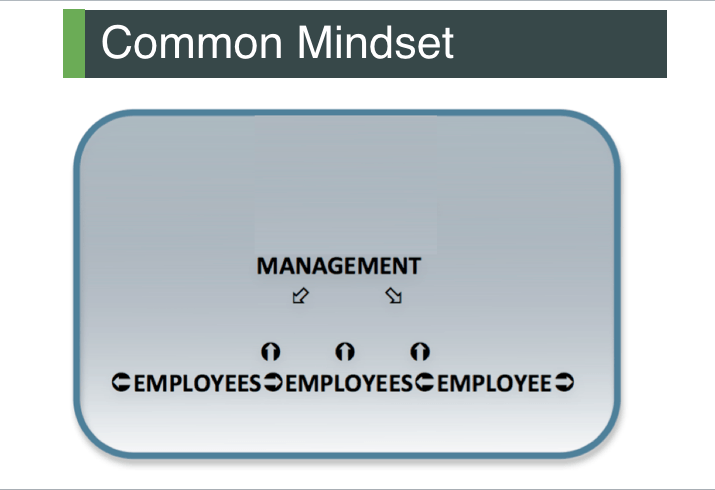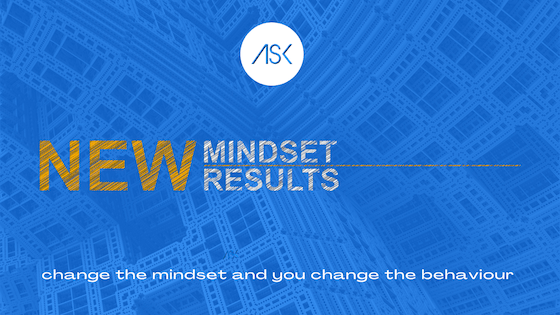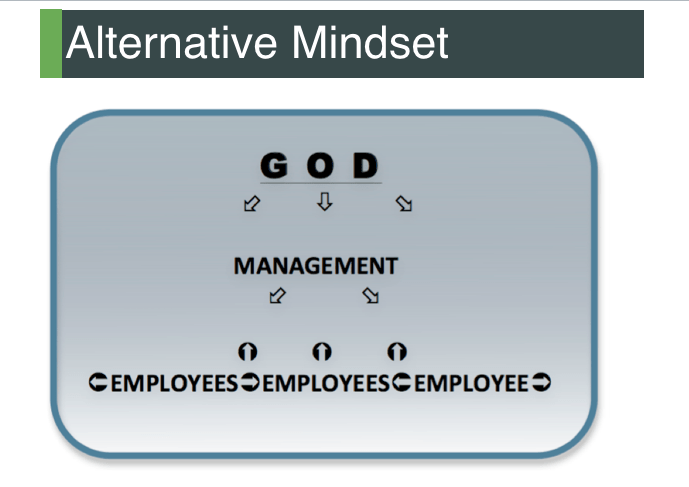Change the mindset and you will change the behavior.
This article was refreshed with updated insights, ASK Framework integration, FAQs, and schema enhancements on November 20, 2025.
In a “jungle” corporate culture, it’s easy to normalize survival mode — but our mental maps, or inner operating systems, ultimately shape how we behave at work. When we hack these mental maps through Spiritual Intelligence, we don’t just survive the culture, we begin to transform it.
Read: The Importance of Values-Mission-Vision in Professional Growth
The Challenge of Corporate Culture
The road to the top is challenging because we will be collaborating with an array of people, and we will realise that it can be rough and at times dirty. The terrain will also lead us to crossroads, where we’ll have to choose a direction based on either the examples set by others or our own moral compass.
While we have control over the choices we make, we don’t have control over the consequences. The outcome of our actions are determined by natural and spiritual laws that have been in place since forever.

The business landscape is a playing field where employees earn and make a name for themselves.
It is also the arena where companies compete or collaborate to stay in business. With the changing trends brought by AI, social media, globalization, and disruption like UWAN and TINO, business strategies change to stay relevant and survive.
Employees, likewise, must adapt AI for continuity of employment because job security is not guaranteed. According to an old Darwinian quote, “those who adapt to change survive.”
This is not bad, however such a mindset affects behavior. According to Francis J. Kong,
“Corporate culture can make an employee behavior better or worse.”
In fact, a friend described the culture in his company as “jungle.” “Men, they will eat you alive,” he said. “It is a place where only the strongest survives, a place where you have to constantly watch your back because you’re not sure who’s on your side and who’s not.” He further said, “you have to learn how to paddle your own canoe and don’t expect help from your peers. If you can not survive on your own, you will never make it.”
Research on toxic culture shows that when “jungle rules” are allowed to thrive, employees are more likely to disengage, break rules, or abandon the organization. The environment and its unwritten rules can strongly influence how people think, feel, and behave at work. This is confirmed by major studies on organizational climate, highlighting how culture shapes shared perceptions and, consequently, behavior.
Read: Resilience At Work Is Both Grit and Self Protection
Employee Behavior Is Influenced by Mental Maps
In one of my talks, someone asked, “Is there a proactive way to deal with this highly competitive organization culture?”
Norman Vincent Peale once said:
“Change your thoughts and you change the world.”
Mental maps are like operating systems that influence (if not outright control) employee behavior.
In organizational psychology, what we call mental maps—or mental models—are internal frameworks shaping how we interpret work events and make decisions (see overview). Empirical studies with health professionals vividly illustrate how individual perspectives and mental maps of working conditions directly affect job satisfaction and retention intentions (read study).
Teams with well-aligned mental models consistently outperform others, especially when facing complex or changing environments (view article). Organizational research further demonstrates that shared schemas and belief systems are key drivers for cultural transformation (view mapping study).
READ: Managing Different Employee Behavior
The Default Mental Map: Compete or Connive to Survive

Undoubtedly, there are some terrible employers. But there are also kind-hearted management teams who take care of their employees commensurate to their capacity. However, regardless of how management treats them, some employees respond by focusing on what they want and how they can get it now.
In my more than 30 years in talent and organizational management and development, the following are examples of value-negating actions taken by some employees against their employers because they believe they are entitled to more:
- In labor-intensive organizations, employees organized a labor union mainly to compel management to enter a collective bargaining agreement, even when leadership was already open to dialogue.
- In other companies, employees connived to steal resources — from office supplies to time, data, or relationships with customers.
- The more “finessed” have used individual competitive approaches to get ahead of others or to negotiate a better compensation package. While some professionals compete ethically, others will go to any length to get what they want.
A workplace dominated by survival mindsets fosters negative politics and workplace bullying (ILO C190 context). According to the 2023 APA Survey, such climates not only reduce engagement but also erode organizational trust and well-being (APA Work in America).
Is There Any Influence That Can Mitigate Employees’ Free-for-All Behavior?
The good news is that mental maps are not permanent. The same way they were formed — by stories, repeated choices, and modeled behavior — they can also be reshaped. The question is: what worldview will we use to hack and reframe these maps?
Case studies from organizations like Google show that cultural innovation thrives when belief systems and integrity are put above mere personal gain (Google case study).

The Alternative Mental Map: Workplace Spirituality and Spiritual Intelligence (WSSQ)

A belief that a more powerful figure, such as God, is on top of everything can bring order and integrity to the workplace. A just God who rewards or reprimands a person based on his actions can alter a mental map and, eventually, employee behavior.
- Managers will be less arrogant and will be accountable for both their motivation and actions.
- Non-managerial employees, on the other hand, will not take matters into their own hands, preferring to be proactive and value-adding.
This mental map, however, cannot be legislated; it is a personal choice. When an employee willingly adopts this mental map, his or her attitude changes. When the attitude shifts, so does one’s behavior. Legislation can only compel action, not attitudes. For example:
“A dad said to his daughter, ‘Baby, sit down.’ The daughter replied, ‘I don’t like.’ The dad got angry and said, ‘Sit down!’ ‘No, I won’t!’ the daughter replied. So Dad forced her to sit down, but the daughter said, ‘I may be sitting down, but in my heart, I am still standing.’”
This alternate mental map uses Workplace Spirituality (WS) and Spiritual Intelligence (SQ) as a tool to “hack” the worldview, thereby improving employee behavior. A shift in behavior improves the corporate environment by aligning organizational culture with natural and spiritual laws.
As a Manager, Do I Need to Check the Mental Maps of My Group?
By identifying the dominant mental maps, we can identify the root causes or triggers that explain the company or department’s culture. These are the reasons why employees behave the way they do.
The latest evidence confirms: workplace change is possible when leaders guide teams to reconstruct their mental maps through values-based conversations and strategic coaching (tips & examples).
Enriching your understanding and leadership approach with these research-backed insights ensures your culture shift journey is grounded in both science and real world best practices.
ASK Integration: Align • Strengthen • Kickstart
This article is a live example of how our ASK Framework applies to corporate culture and employee behavior:
- Align — We surface the hidden mental maps behind “jungle” corporate cultures and invite employees and leaders to align their thinking with values, mission, and a God-centered moral compass.
- Strengthen — We introduce Spiritual Intelligence as a capacity builder, helping people interpret pressure, power, and politics through natural and spiritual laws, not just fear or survival.
- Kickstart — We challenge managers and employees to start culture shifts one decision, one conversation, and one mindset hack at a time, moving from free-for-all behavior to value-adding conduct.
When leaders and employees adopt healthier mental maps, the workplace becomes a better space to grow careers, protect people, and honor both business goals and higher values.
💡 The ASK Takeaway
Mental maps and Spiritual Intelligence sit right at the heart of our ASK Framework — Align • Strengthen • Kickstart:
- Align your mental maps with your values, mission, and an integrated view of work, faith, and ethics.
- Strengthen capacity by developing Spiritual Intelligence — anchoring decisions on natural and spiritual laws, not just corporate politics.
- Kickstart culture shifts where managers and employees choose value-adding behavior over “jungle” survival mindsets.
Discover the full framework →
ASK Framework Cornerstone Page
Frequently Asked Questions on Mental Maps and Employee Behavior
1. What do you mean by “mental maps” in the workplace?
Mental maps are the inner beliefs, assumptions, and operating mindsets that shape how a person interprets situations at work.
They act like an internal “OS” that guides how employees respond to pressure, power, rewards, and conflicts — often unconsciously.
2. How does Spiritual Intelligence differ from Emotional Intelligence at work?
Emotional Intelligence focuses on self-awareness, empathy, and managing emotions.
Spiritual Intelligence goes a layer deeper: it connects behavior to a higher moral and spiritual anchor
(for example, accountability to God, natural and spiritual laws) that guides what is right,
not just what is effective or popular in the company culture.
3. Is “God in the workplace” even possible in a secular or diverse organization?
Yes — the point is not to impose religion, but to recognize that many employees already draw their values and integrity from their faith.
When handled with respect and wisdom, this can encourage honesty, accountability, and compassion,
while still respecting diversity and freedom of belief.
4. As a manager, how do I “check” my team’s mental maps without being preachy?
Start with conversations, not sermons. Ask values-based questions, listen to how people justify decisions,
and observe patterns of behavior under stress. From there, you can coach, model, and reinforce mental maps
that are value-adding rather than “dog-eat-dog,” always within the boundaries of company policy and respect for personal beliefs.
5. What if I’m not religious — can I still apply these concepts?
Absolutely. Even if you don’t share the same faith perspective, you can still work with mental maps that emphasize integrity,
stewardship, fairness, and accountability. The article’s “God in the workplace” lens simply shows how a spiritual worldview
can powerfully reframe behavior — but the underlying principles of responsible, value-adding conduct are universal.





